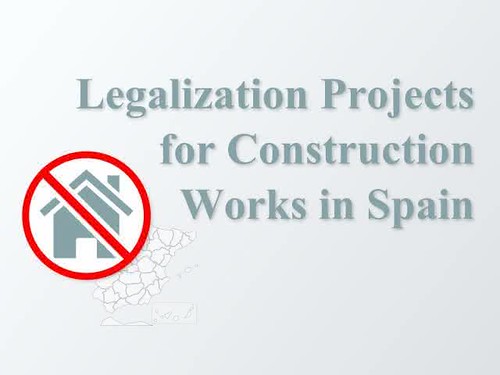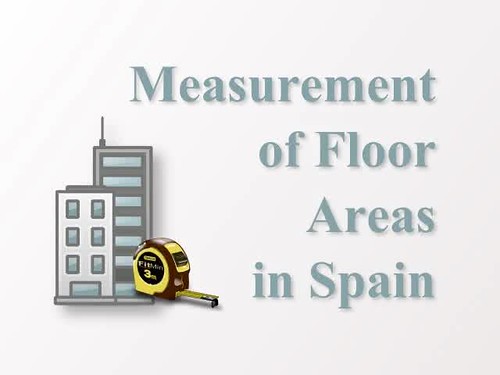Wednesday, 18 June 2014
Measuring Floor Areas in Spain – GFA and GIA
Etiquetas:
area,
areas,
covered outdoor spaces,
eco 805 2003,
floor area,
floor areas,
gfa,
gross floor area,
gross internal area,
measurement,
outdoor spaces,
spain,
spanish cadastre
Ubicación:
España
Tuesday, 17 June 2014
Video 03: Legalization Projects for Construction Works in Spain

Architect Daniel Trujillano
http://www.arquitectotrujillano.com/legalization/home.html
Legalization Projects for Buildings in Spain
Etiquetas:
architect,
architectural design,
architectural design phase,
construction,
construction documents,
construction documents phase,
construction works,
legalization,
legalization projects,
urban planning
Ubicación:
España
Monday, 9 June 2014
Info00. Gross Floor Area and Gross Internal Area in Spain
Etiquetas:
area,
areas,
covered outdoor spaces,
eco 805 2003,
floor area,
floor areas,
gfa,
gross floor area,
gross internal area,
measurement,
outdoor spaces,
spain,
spanish cadastre
Ubicación:
España
Legalization of Buildings in Andalusia (II)
Legalization of Construction Works in Andalusia (II)
Effects of the Resolution. Light Nonconformities and Non-Fulfillment.
The resolution of the legalization procedure produces the following effects:
- if the license gets granted or, if applicable, the actions become considered consistent with their authorization, the construction works will be considered legalized
- if the license gets denied or, if applicable, the actions become considered not consistent with their authorization, an order for restoring physical reality will be issued.
Light Nonconformities
If the replacement of physical reality is considered difficult or impossible and the non-conformities of the performed works with applicable urban planning are not substantial, it will still be possible to apply and obtain legalization, exceptionally. In order to discern whether nonconformities with urban planning are substantial or not, current Regulations on Urban Infractions in Andalusia considers the following rating criteria:
- excess in floor area, in relation to authorized parameters
- visibility from the street
- affection of the performed construction works over the rest of the building complex
- robustness of the performed works
- affection to architectural barriers to the handicapped.
If the developer was formerly sanctioned because of serious urban planning offenses, he will not be able to benefit from the application of this principle.
Non-Fulfillment of the Legalization
If the time allowed in the process of protecting urban planning law expires and the developer does not apply for the legalization or, if applicable, does not fit the performed construction works to their authorization, the acting Public Administration will proceed according to the following cases:
- If the legalization is possible, it will impose up to 12 coercive fines, until the legalization gets applied or, if applicable, the performed construction works get adjusted to the authorization. If, after imposing the 12th fine, the correction has not yet produced, the replacement of the physical reality will be ordered, and the developer will be forced to pay for it.
- If the legalization is not possible, it will order the replacement of the physical reality.
- If the performed construction works are manifestly incompatible with the urban planning, the City Council, or other public entity responsible for urban planning, will order the immediate demolition of the works, after hearing with the developer.
Legalization Procedure and Disciplinary Procedure
The appreciation of the alleged commission of an urban planning offense should always give rise to the initiation, investigation and resolution of a relevant disciplinary procedure, no matter if the legalization is possible or not. The procedure derived from the requirement for the application of the legalization of the performed construction works, or for replacing the physical reality, should be instructed and resolved regardless of the disciplinary procedure, but both procedures should be developed in a coordinated manner.
Architect Daniel Trujillano
Legalization Documents for Buildings in Andalusia
Etiquetas:
andalusia,
buildings in andalusia,
construction,
construction works,
disciplinary procedure,
legalization,
legalization procedure,
urban planning,
urban planning ofense
Ubicación:
Andalucía, España
Friday, 6 June 2014
Legalization of Buildings in Andalusia (I)
Legalization of Construction Works in Andalusia (I)
Legalization or Replacement. Procedure. Inspection Plans.
Between the provisions established by Decree 60/2010, about Regulation of Urban Infractions in Andalusia, are those governing the legalization of construction works performed with no license or violating the conditions in a granted license.
Legalization or Replacement
In Andalusia, if an act of urbanization, construction, or installation is subject to prior planning permission and is eventually performed without it, or against the conditions in a granted permit, the City Council shall order the immediate suspension of the works. After the suspension, the restoration of the disturbed legal order must be performed by one between the following procedures:
- if the performed works are compatible with current urban planning, through the Legalization of the Works
- if the performed works are not compatible with urban planning, through the Replacement of the Physical Reality to its original state.
All of the above also applies in the case of acts performed in breach of the terms of an Order by the City Council.
Procedure for the Protection of the Urban Law
If the works performed with no license, or against the conditions in a granted license, are compatible with current urban planning, the developer must be required to apply for the legalization or, where appropriate, to fit the performed works to the granted permit. If the developer chooses to legalize, he will have two months to apply for it; however, if the performance is very complex, he can apply for extend this period for two additional months.
Municipal Plans for Urban Inspections
According Andalusian Decree 60/2010, every Municipal Plan for Urban Inspections should count with an inventory containing, for each class and category of land, a relationship of buildings, settlements and other actions which must be subject to legalization, in conformity with all applicable territorial and urban planning regulations.
Architect Daniel Trujillano
Legalization Documents for Buildings in Andalusia
Etiquetas:
andalusia,
buildings,
buildings in andalusia,
construction,
construction works,
decree 60 2010,
legalization,
legalization of buildings,
legalization of construction,
urban inspections,
urban planning
Ubicación:
España
Wednesday, 4 June 2014
Video 00: Measurement of Floor Areas in Spanish Buildings

Architect Daniel Trujillano
http://www.arquitectotrujillano.com/measurement/home.html
Measurement Reports for Properties in Spain
Etiquetas:
area,
areas,
covered outdoor spaces,
eco 805 2003,
floor area,
floor areas,
gfa,
gross floor area,
gross internal area,
measurement,
outdoor spaces,
spain,
spanish cadastre
Ubicación:
España
Tuesday, 3 June 2014
Legalization Documents for Buildings in Spain (II)
The Legalization of Buildings in Spain (II)
Drafting Legalization Documents
The Legalization Documents are required when the construction works were performed without the intervention of an Architect.
Technical Documentation
Generally, Legalization Documents refer to construction works that were performed without any Architectural Documents, so the technical and administrative documentation they require is the sum of the documents associated to the Architectural Design phase and the Construction Documents phase, with exception of some documents (Specifications Document, Measurement Document, Order Book, etc.). Normally, Legalization Documents shall consist of the following:
- Description, Justification and Construction Reports
- Justification of Compliance with Spanish Technical Building Code (CTE)
- Justification of Compliance with other Regulations (Telecommunications, Accesibility, etc.)
- Annexes (Fire Protection, Calculation of Installations, Energetic Efficiency, etc.)
- Location Plan, Site Plan, Urban Development Plan, Floor Plans, Elevations and Sections Plans, Structure Plans, Installations Plans, etc.
- Summary of the Construction Cost
- Instructions for Use and Maintenance
- Architect's Certificate
- Common Certificate suscribed by both Architect and Technical Architect, where legally required
- Pictures showing all exterior walls.
Legalization of Unfinished Construction Works
If the construction works are not fully completed, the architectural assignment needed shall be named “Legalization of Performed Works and Construction Documents for the Completion”. In that case, it will be necessary to clearly differentiate the completed parts from the unfinished ones, and the latter will need all documents associated to the Architectural Design phase and the Construction Documents phase, without exception.
Architectural Fees
Typically, fees associated to the professional service of drafting Legalization Documents for construction works are calculated by analogy with those applicable to a new building assgnment.
Endorsement by Architects' Association
According to the Spanish legislation (Royal Decree 1000/2010), during the administrative procedure associated to the legalization of construction works, all Legalization Documents and the Final Performance Certificate must obtain endorsement by the Architects' Association.
Etiquetas:
architectural design phase,
buildings in spain,
construction documents,
construction documents phase,
construction works,
documents for buildings,
legalization documents
Ubicación:
España
Monday, 2 June 2014
Measuring Floor Areas in Spain (II)
Measuring Floor Areas in Buildings (II)
GIA and GFA in Spanish Order ECO/805/2003
In Spain, Order ECO/805/2003, on Valuation Standards for Real Estate Properties, includes specific criteria for the measurement of Gross Internal Areas (GIA) and Gross Floor Areas (GFA) in buildings.
Gross Internal Area - GIA
According to the Order ECO/805/2003, GIA is the result of substracting from the floor area bounded by the perimeter defined by the inner face of the external wall of a building -or a building element- the following areas:
- the area occupied by all internal walls and partitions
- the area occupied by vertical structural elements
- the area occupied by pipes or ducts with horizontal section area greater than 100 square centimeters
- the floor area where clear height is smaller than 150 centimeters.
The floor area bounded by the perimeter defined by the inner face of external walls must include 50 per cent of the floor area of all private use covered outdoor spaces (terraces, balconies, drying rooms, porches, loading docks, overhangs, etc.), as measured along the horizontal projection of the roof.
GFA Excluding Common Parts
According to the Order ECO/805/2003, the Gross Floor Area Excluding Common Parts is the result of adding to the floor area delimited by the inner face of the external walls of a building -or element of a building- the following areas:
- 100 per cent of all area occupied by facades
- 50 per cent of all area occupied by sharecropping partitions, or partitions shared with other elements in the same building.
Again, the floor area bounded by the perimeter defined by the inner face of the external walls must include 50 per cent of all private covered outdoor spaces, as measured along the horizontal projection of the roof.
GFA Including Common Parts
According to ECO/805/2003, Gross Floor Area Including Common Parts includes the proportionate share which is result of the application of the associated sharing rate on the floor area of all common elements of the building.
Architect Daniel Trujillano
Etiquetas:
area,
areas,
building,
eco 805 2003,
external wall,
external walls,
floor area,
floor areas,
gfa,
gia,
gross floor area,
gross internal area,
internal area,
measuring floor areas,
spain
Ubicación:
España
Legalization Documents for Buildings in Spain (I)
The Legalization of Buildings in Spain (I)
Legalization as a Method to Restore the Perturbed Legal Order
In Spain, when construction works are performed without having a building permit or violating the conditions in a granted building permit, the legal order is considered perturbed. The right method for restoring the legal order depends on whether the performed works are or not compatible with the applicable urban planning. If the performed construction works are not compatible with the urban planning, the only way to restore the legal order will be resetting the physical reality to its original state, which will involve demolishing what has been built, but if the works are compatible with urban planning, there will be another solution: legalizing the performed works.
Deadline for Applying for Legalization
When a developer is required for legalizing construction works performed without a building permit (or violating the conditions in a granted permit) he should apply for the legalization within a specific time frame wich, in Andalusia, is two months. That time frame can be expandable in response to the complexity of the project.
After the Application
It's neccesary to keep in mind that, having applied for legalization, it's still possible that finally the demolition of what was built gets ordered. If the legalization is applied and is denied, it will be neccesary to restore the physical reality and therefore to demolish what was built. The same applies if, after applying for the legalization, the result is the legal inadmissibility of the acts, because of non-conformity with determinations in applicable legislation and urban planning.
Penalties for Non-Compliance
If after the time granted to the developer in order to legalize the construction works, he doesn't apply for the legalization, successive coercive penalties will be imposed. In Andalusia, the amount of such penalties is, each time (penalties are imposed for minimum periods of one month), ten per cent of the value of the completed building works, with a minimum of 600 euros.
Infringement Procedure
When the alleged commission of an urban planning infringement is noticed, it produces the initiation, investigation and resolution of a disciplinary proceeding. This legal procedure is instructed and resolved regardless of the procedure derived from the requirement for the legalization of the construction works, but in a coordinated manner.
Etiquetas:
andalusia,
building,
building permit,
buildings,
buildings in spain,
construction,
construction works,
documents for buildings,
legal order,
legalization,
legalization documents,
spain,
urban planning
Ubicación:
España
Subscribe to:
Comments (Atom)




